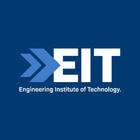- IDP China>
- 课程库>
- 工程与技术>
- 工程学及其相关技术>
- 机械与工业工程技术>
- Graduate Certificate in Industrial Automation Engineering (Online)
Graduate Certificate in Industrial Automation Engineering (Online)

学历文凭
Graduate Certificate

专业院系
School of Industrial Automation, Instrumentation and Process Control

开学时间

课程时长

课程学费

国际学生入学条件
Hold a recognized bachelor’s degree (or above) in engineering or science in a congruent field of practice*,
Have completed the equivalent of first-year Bachelor level mathematics or are able to demonstrate recognized relevant work experience.
IDP—雅思考试联合主办方

雅思考试总分
6.0
- 雅思总分:6
- 托福网考总分:60
- 托福笔试总分:160
- 其他语言考试:NA
CRICOS代码:
申请截止日期: 请与IDP联系 以获取详细信息。
课程简介
相关申请
 预科
预科 奖学金
奖学金 实习机会
实习机会 在校学习
在校学习 跨境学习
跨境学习 校园授课-线上开始
校园授课-线上开始 在线/远程学习
在线/远程学习
开学时间&学费
学费信息仅供参考,请与IDP联系以获取详细信息
| 开学时间 | 时长 | 学费 | 地点 |
|---|
本校相关课程

Master of Engineering (Mechanical)
学历文凭
Masters Degree (Coursework)
开学日期
课程费用总额


Master of Engineering (Industrial Automation)
学历文凭
Masters Degree (Coursework)
开学日期
课程费用总额


Master of Engineering (Electrical Systems)
学历文凭
Masters Degree (Coursework)
开学日期
课程费用总额


Master of Engineering (Civil - Structural)
学历文凭
Masters Degree (Coursework)
开学日期
课程费用总额


Bachelor of Science (Mechanical Engineering)
学历文凭
Bachelor Degree
开学日期
课程费用总额


Bachelor of Science (Industrial Automation Engineering)
学历文凭
Bachelor Degree
开学日期
课程费用总额

其他相关课程

专业工程学硕士(地质力学)
 悉尼大学
悉尼大学泰晤士高等教育世界大学排名:54
学历文凭
Masters Degree (Coursework)
开学日期
课程费用总额


工学学士学位(机械)(荣誉学位)/工学硕士学位(生物医学)
 弗林德斯大学
弗林德斯大学泰晤士高等教育世界大学排名:307
学历文凭
Dual Degree
开学日期
课程费用总额


工程荣誉学士学位(机械工程)
 悉尼大学
悉尼大学泰晤士高等教育世界大学排名:54
学历文凭
Bachelor Degree with Honours
开学日期
课程费用总额


机械与制造工程研究硕士
 南澳大学
南澳大学学历文凭
Masters Degree (Research)
开学日期
课程费用总额


工程学硕士(机械)
 阿德莱德大学
阿德莱德大学学历文凭
Masters Degree (Coursework)
开学日期
课程费用总额


工学学士-机械(荣誉学位)
 弗林德斯大学
弗林德斯大学泰晤士高等教育世界大学排名:307
学历文凭
Bachelor Degree with Honours
开学日期
课程费用总额











